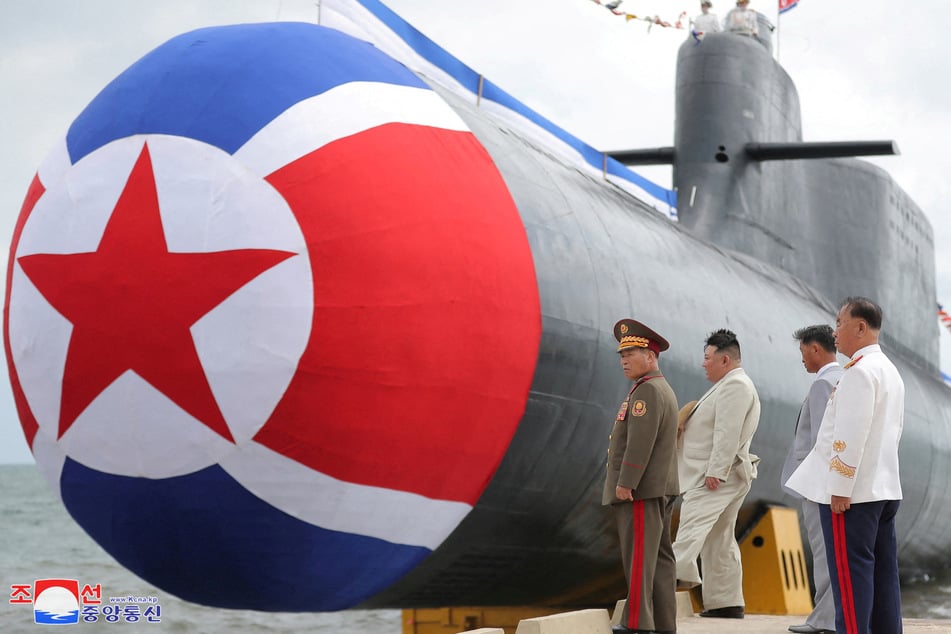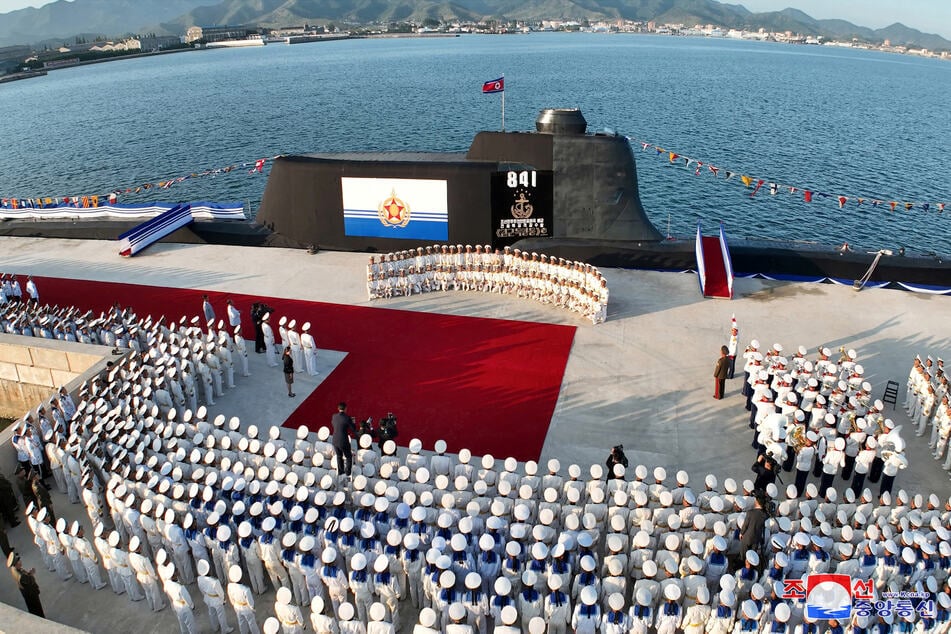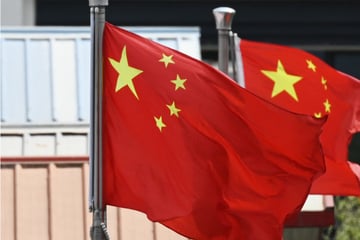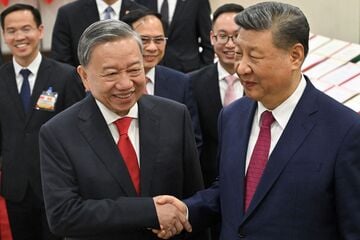North Korea's claim of new nuclear attack submarine met with doubt
Pyongyang, North Korea - North Korea said on Friday it had launched its first "tactical nuclear attack submarine" and that ruler Kim Jong Un oversaw the deployment, but the South quickly suggested Pyongyang was exaggerating the warship's capabilities.

The launch ceremony, held on Wednesday, "heralded the beginning of a new chapter for bolstering up the naval force," the North's state-controlled KCNA news agency reported.
Arming the navy with nuclear weapons was "an urgent task of the times," Kim was quoted as saying during his speech at the ceremony.
It remained unclear how many missiles the new submarine could carry and fire. Photos showed 10 launch tube hatches that could be used for submarine-launched ballistic missiles (SLBMs), according to reports from South Korean media.
North Korea has tested such missiles several times in the past, despite UN resolution prohibiting the launches.
Depending on the design, such rockets can be equipped with nuclear warheads, making SLBMs of particular strategic value.
The sub would "perform its combat mission as one of [the] core underwater offensive means of the naval force" of North Korea, KCNA said.
Military experts question significance of North Korean breakthrough

Shortly after the announcement, military experts began expressing doubts about whether the submarine actually marked a significant breakthrough.
Joseph Dempsey, a defense analyst for the International Institute for Strategic Studies in London, said on X that it appeared to be a "modified" Romeo class Soviet submarine and that the photos could have been manipulated.
South Korea's General Staff in Seoul said it, along with the United States, has been monitoring the launch preparations.
An analysis of the external features shows that parts have been enlarged to carry rockets, but the submarine in its current form is "not capable of normal operation," the General Staff said.
Last month, Kim decried a recent announcement by "the gang bosses" of the US, Japan, and South Korea that they would hold regular joint military exercises.
The North Korean ruler said the situation required his country's naval force to be strengthened.
UN resolutions prohibit North Korea from testing ballistic missiles of any range, some of which are capable of carrying a nuclear warhead.
Tests of cruise missiles are not subject to sanctions against Pyongyang. Such weapons, however, can also be used to deliver nuclear warheads.
Cover photo: KCNA via REUTERS

